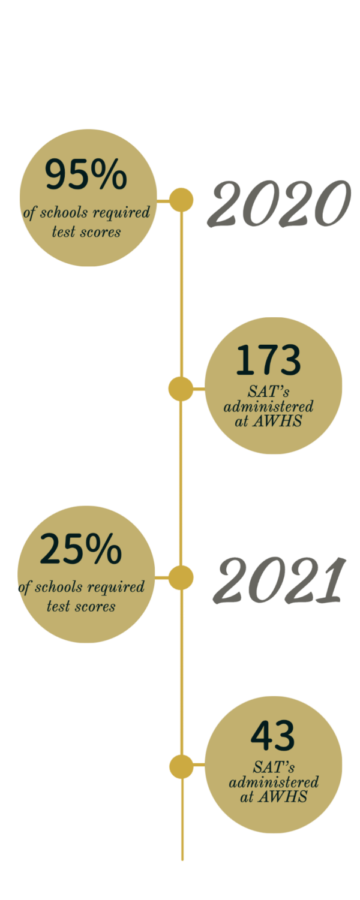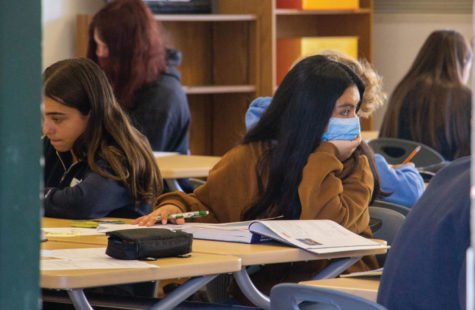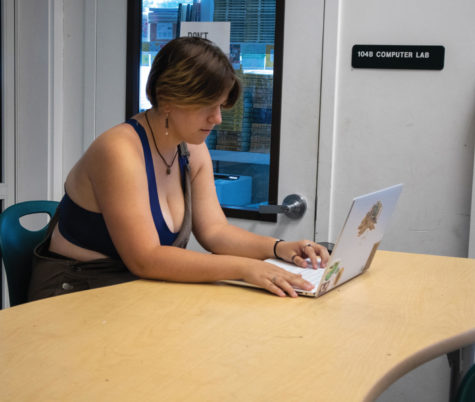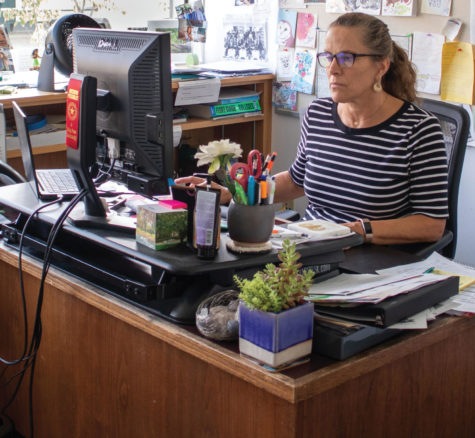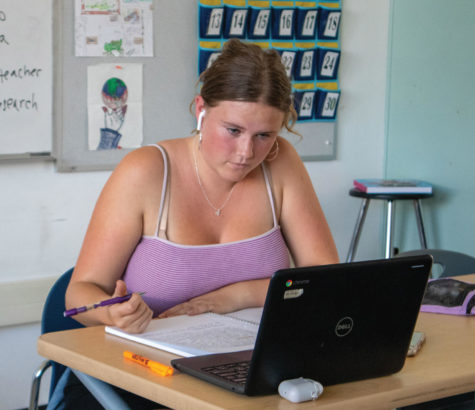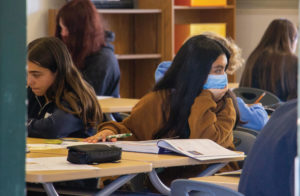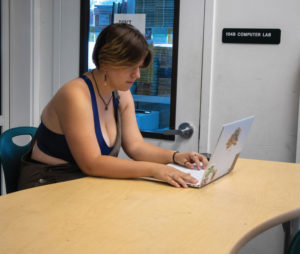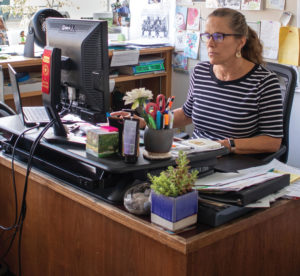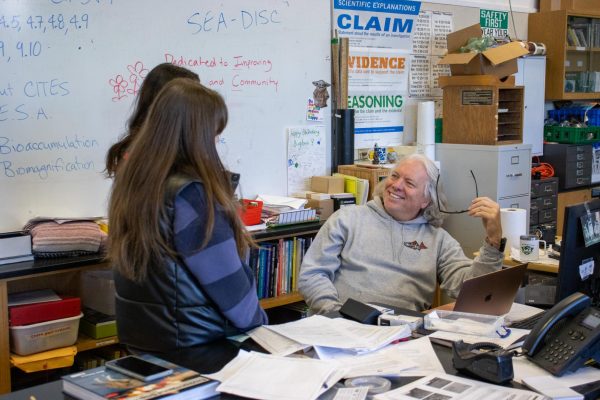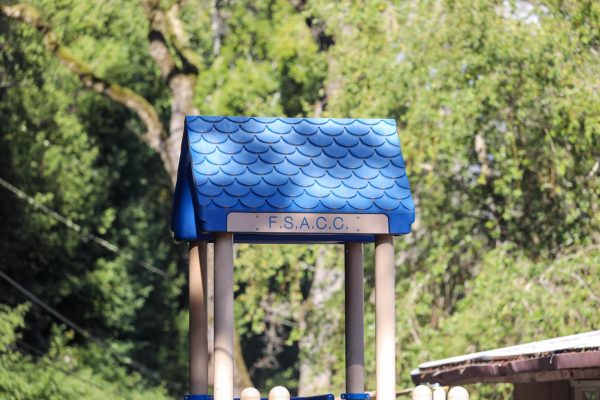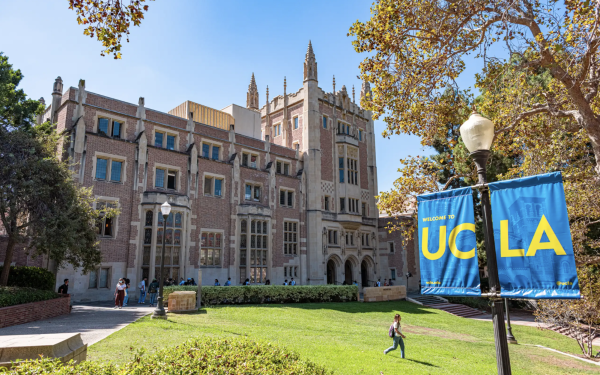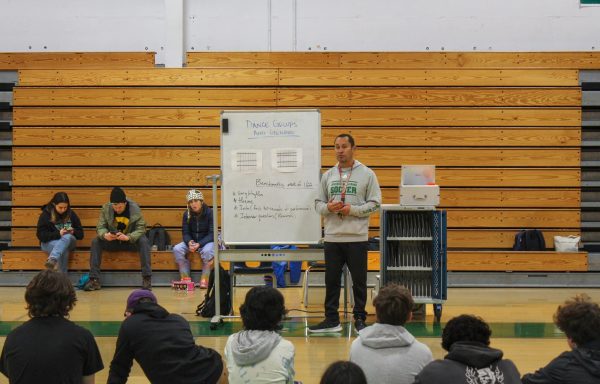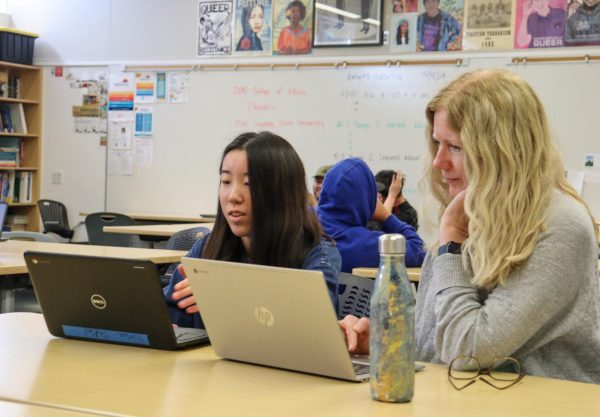SAT and ACT tests diminish in relevance to the college admissions process
The amount of SAT tests administered at Archie Williams, along the percentage of colleges who require an SAT/ACT score, has decreased over the past two years.
In 2020, due to safety concerns surrounding the COVID-19 pandemic, the College Board temporarily suspended SAT/ACT test taking. These tests, required by 95% of U.S colleges at the time, were a critical aspect of many schools’ admissions process for evaluating math and English skills. Although this suspension has since been lifted, over 75% of colleges and universities, citing inequities in the standardized testing process, have allowed for the SAT and ACT score submissions to remain optional to their admissions process.
According to the National Education Association (NEA), the SAT has a historical testing bias against students of color, citing incidents where the College Board enacted policies that favored white test takers.
For instance, in 1998, the College Board evaluated two questions, one that white students got higher scores on and one that black students got higher scores on. After reviewing the questions, the College Board removed the question that favored Black test takers but kept the question that favored White test takers.
In affluent counties such as Marin, many students have access to test prep that allows them to improve standardized test scores. Because low-income families may not be able to afford tutoring fees (which can range from 800 to 6,000 dollars), there is a noticeable score gap between students from high-income and low-income families. Additionally, the tests themselves are expensive – the SAT costs 60 dollars and the ACT 85 dollars.
Archie Williams senior Abby Childs decided not to take the SAT or ACT, partially because of the alarming price of test preparation resources.
“Everyone who was taking it [seemed to have] a tutor and I was just like, ‘Do I want to take it if I can’t afford a tutor?’ It made me feel bad,” Abby said.
While there are other options for preparing for the SAT/ACT, such as Khan Academy practice tests and preparation workbooks, these study methods aren’t as effective as a private, tailored study program. According to The College Board, as little as six to eight hours of personalized tutoring can raise an SAT score by an average of 90 points.
Abby also found that forgoing the SAT/ACT the test didn’t limit her ability to apply to colleges. She views these tests as an extra stressor that isn’t worth the time and energy they require.
“I felt like [the SAT] would not be an accurate description of who I am in my college readiness,” Abby said.
Abby isn’t the only student who decided not to take the tests. College and Career Counselor Lisa Neumaier has noticed a sharp decrease in test takers over the past few years. In 2020, Archie Williams’ College Board profile showed 173 SATs administered. A year later in 2021, there were only 43. Additionally, 30 ACT exams were administered in 2020, but only 12 in 2021.
Neumaier has also noticed the injustice surrounding standardized testing.
“The people who took the test multiple times, the people who hired private tutors, they were at an advantage,” Neumaier said. “It was an unjust situation. There’s no doubt about it.”
Neumaier doesn’t believe that every student today needs to take SAT/ACT tests. She finds that the majority of colleges and universities are accessible without the added cost of standardized testing, and emphasizes the importance of a strong transcript and an upward-trending GPA.
Although SAT/ACT scores are not required by most schools, applicants to more elite universities and colleges may want a test score to help differentiate themselves between other top candidates.
Junior Declan Garvey opted to take the SAT in case a school he wanted to apply to changed their mind about testing requirements.
“I plan on trying to get into some of the Ivy League [and similar level] schools, which do require it,” Declan said.
While Declan does not regret taking the test, he found that even with the help of a tutor, the SAT did not accurately represent him as a student.
“I realized that many of the questions did not relate to the skills we are taught in schools, and sometimes questions can even seem open to interpretation or are biased to specific knowledge,” Declan said.
Due to the COVID-19 pandemic, colleges and universities re-evaluated not only the necessity of SAT/ACT tests, but the inequities these tests may cause. As more colleges and universities revise their admissions process going forward, the necessity for standardized testing will continue to change.
Your donation will support the student journalists of Archie Williams High School. Your contribution will allow us to purchase equipment and cover our annual website hosting costs. Each donation will receive a magazine subscription for a year (6 copies a year), and become a part of the important work our publication is doing.
$35 -- Subscription to the magazine
$50 -- Silver Sponsorship
$75 -- Gold Sponsorship
$100 -- Platinum Sponsorship

Luca is a junior, in his second year of journalism. You can often find him cooking, snowboarding/skiing, or getting a nose job. He is also an avid rock...


